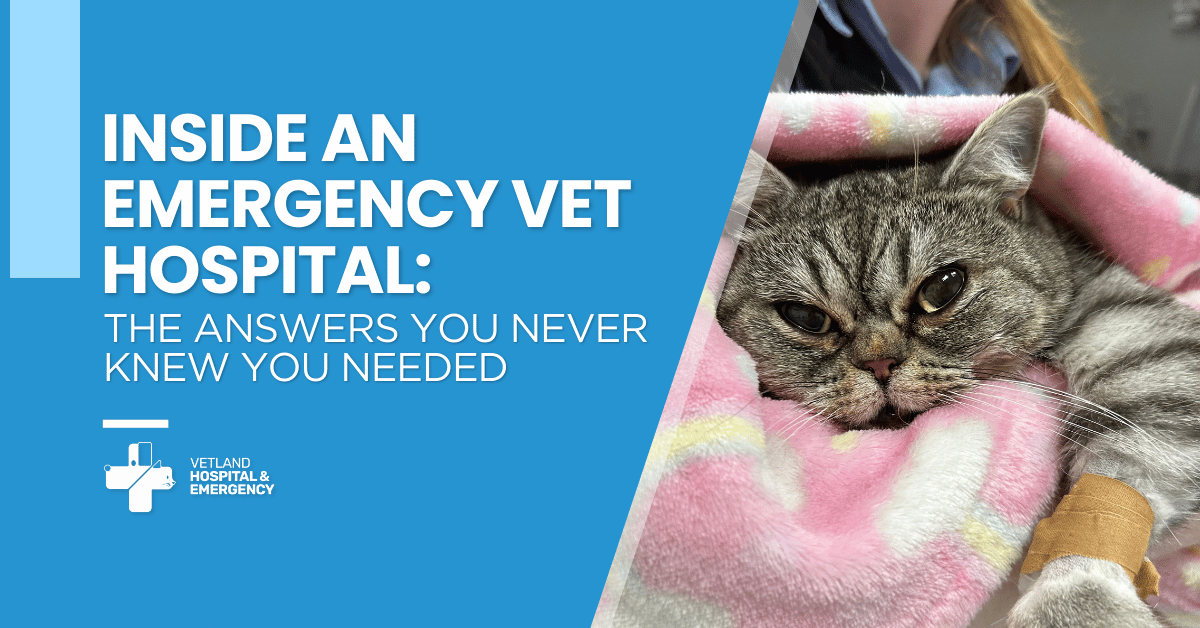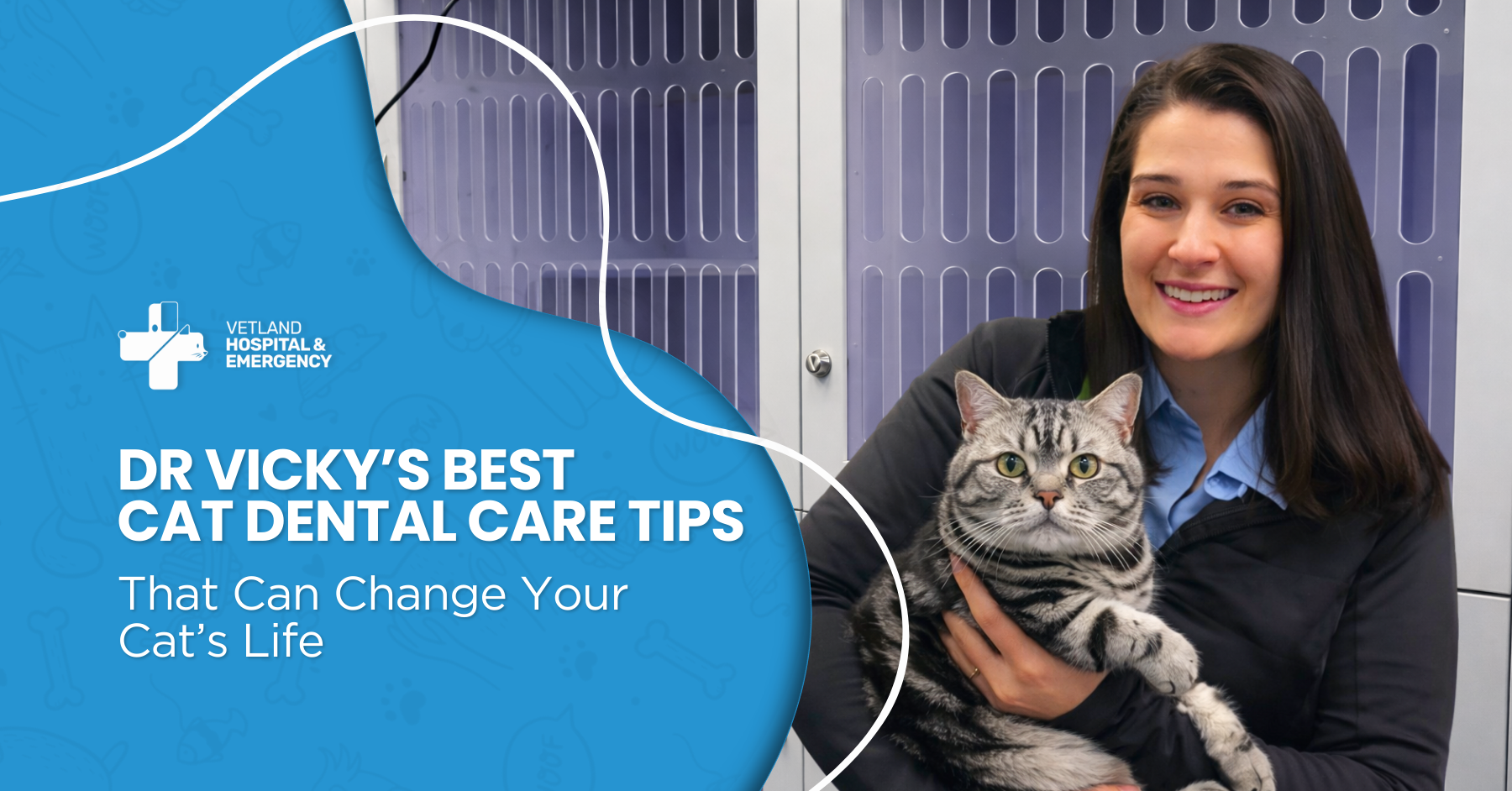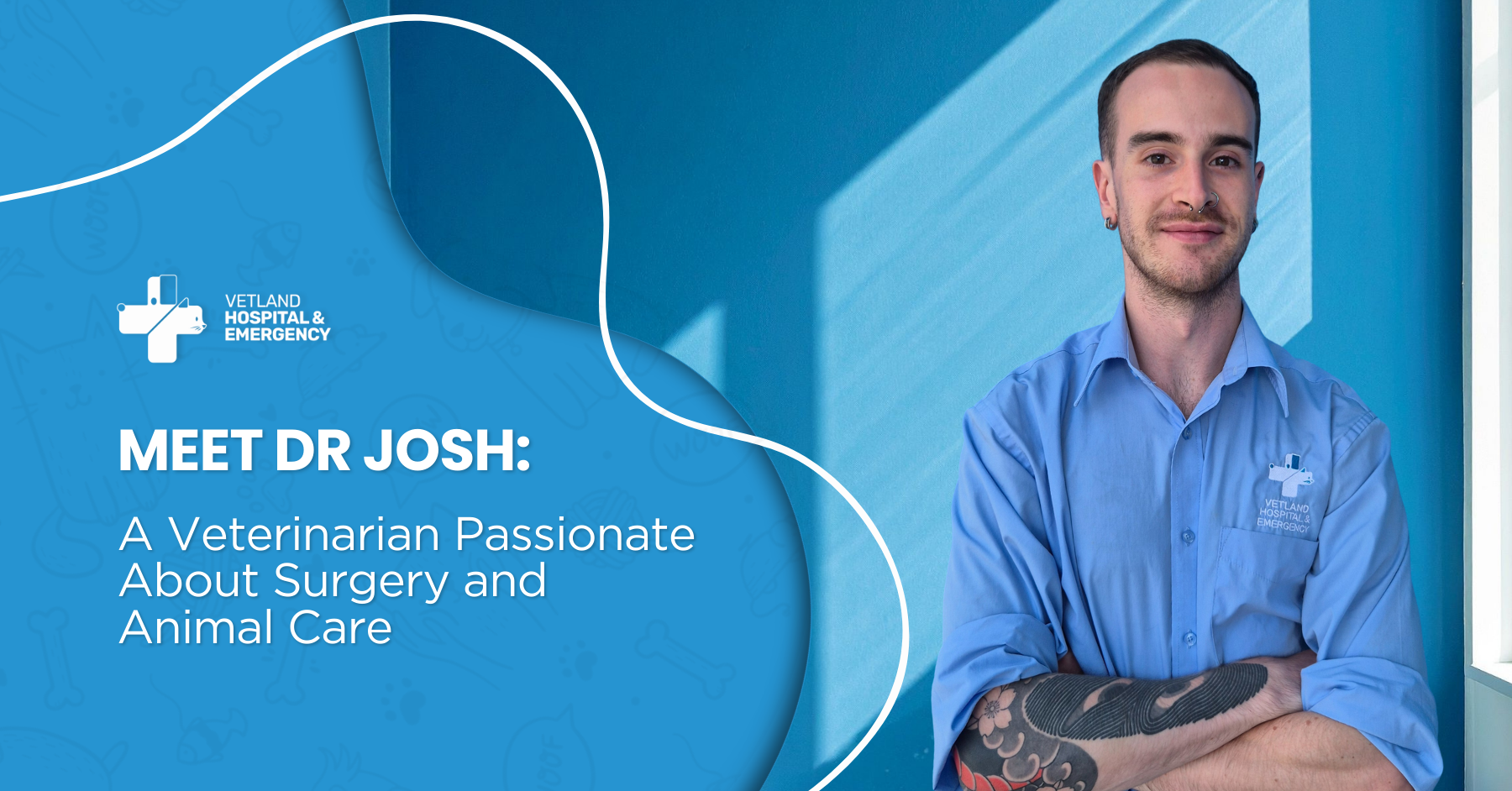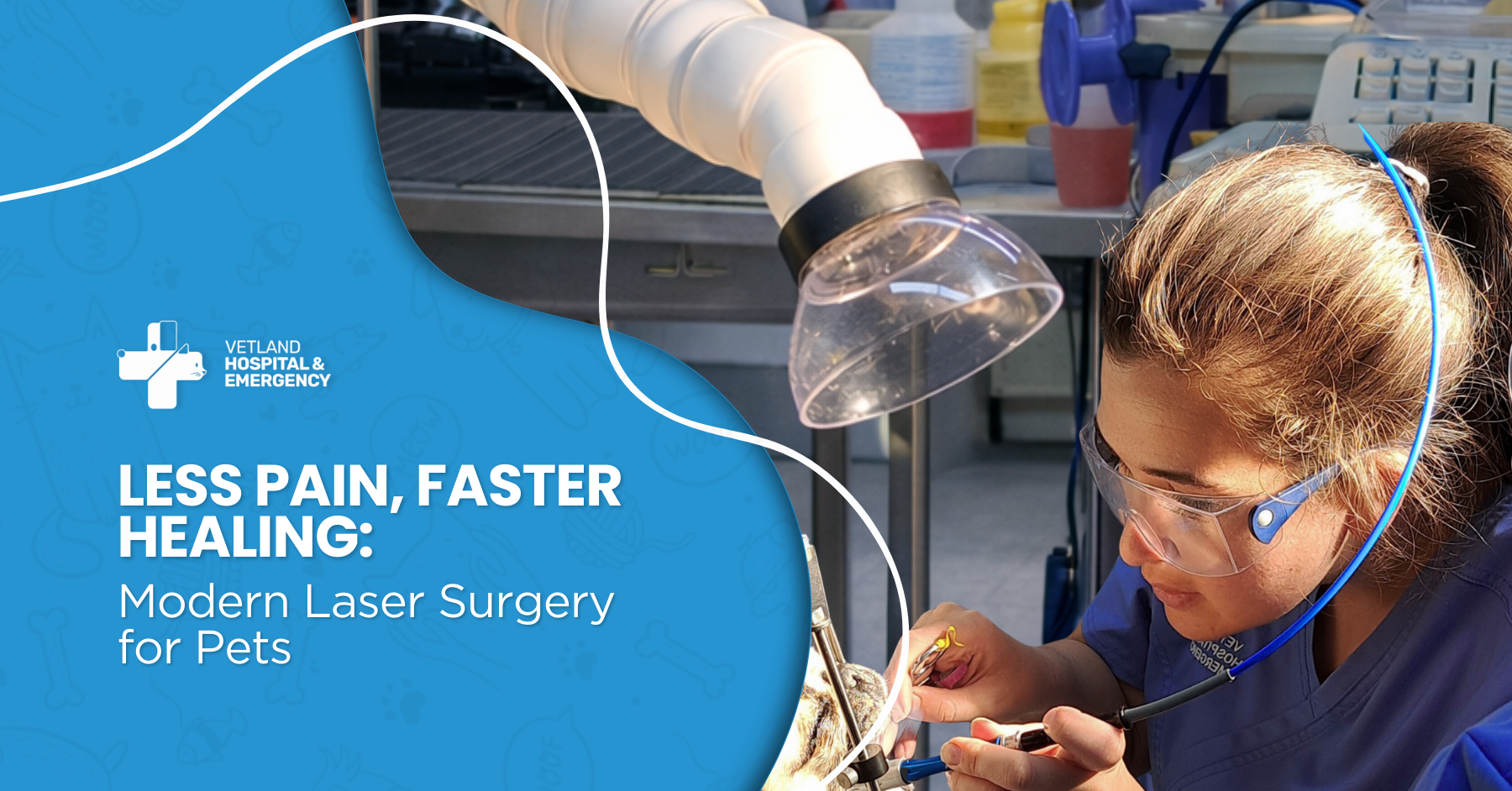Dr Vicky’s Best Cat Dental Care Tips That Can Change Your Cat’s Life
Your cat may be hiding dental pain right now, would you know it? Cat dental care matters for one reason—it hurts.There are no obvious symptoms, but...
2 min read
![]() VetLand Hospital & Emergency
Mar 10, 2025 5:38:27 PM
VetLand Hospital & Emergency
Mar 10, 2025 5:38:27 PM

Step inside the world of emergency vet care. Which breeds land in the ER the most? What odd objects do pets swallow?
Why do wait times feel endless? And what hidden dangers send pets rushing to the vet every single week? If you’ve ever wondered what happens behind those doors, here’s your insider look—no waiting room required.
Some breeds land in the emergency room more often than others. French Bulldogs top the list—partly because they are incredibly popular but, sadly, because they’re prone to problems with their breathing, eyes, skin, joints, and spine. I would strongly recommend researching this breed thoroughly before adopting.

Some dangers are obvious—like chocolate or antifreeze—but others may surprise you:
At the emergency hospital, you can expect that your pet will be triaged and seen in order of need rather than arrival time. This is called triage and ensures that the sickest pets get seen first. So, if you’ve been given an estimate of a hefty wait time, it means your pet is stable (which is a good thing!).
If we rush you straight into the hospital, that’s when things get scary, and trust me - you’d rather be in the waiting group.
We’ll always do our best to respect your time and give you an accurate estimate on wait.

Some emergencies are obvious—like severe bleeding or collapse—but others are subtle.
Some common but lesser-known emergencies include:
If something feels off, trust your gut—get it checked.
What’s the best way to handle an emergency? Stop it before it happens!
Whilst accidents can’t always be avoided, many can—especially with good nutrition, weight management, and knowledge of your pet’s breed risks. A little prevention goes a long way in keeping them happy, healthy, and out of the ER!
My best advice for your pet is to ensure they are being offered a great diet, kept at a lean body weight and exercised regularly. Be sure to stay up to date with their annual health checks, including vaccination. This is a great time to detect disease BEFORE it becomes a serious problem that lands you in the emergency ward at midnight.
If your pet needs urgent care, we’re here. Call Vetland Hospital & Emergency at (03) 8595 6655.

Your cat may be hiding dental pain right now, would you know it? Cat dental care matters for one reason—it hurts.There are no obvious symptoms, but...

What makes someone choose a career full of uncertainty, constant learning, and never-ending challenges?

Gentle. Precise. Designed for Comfort.